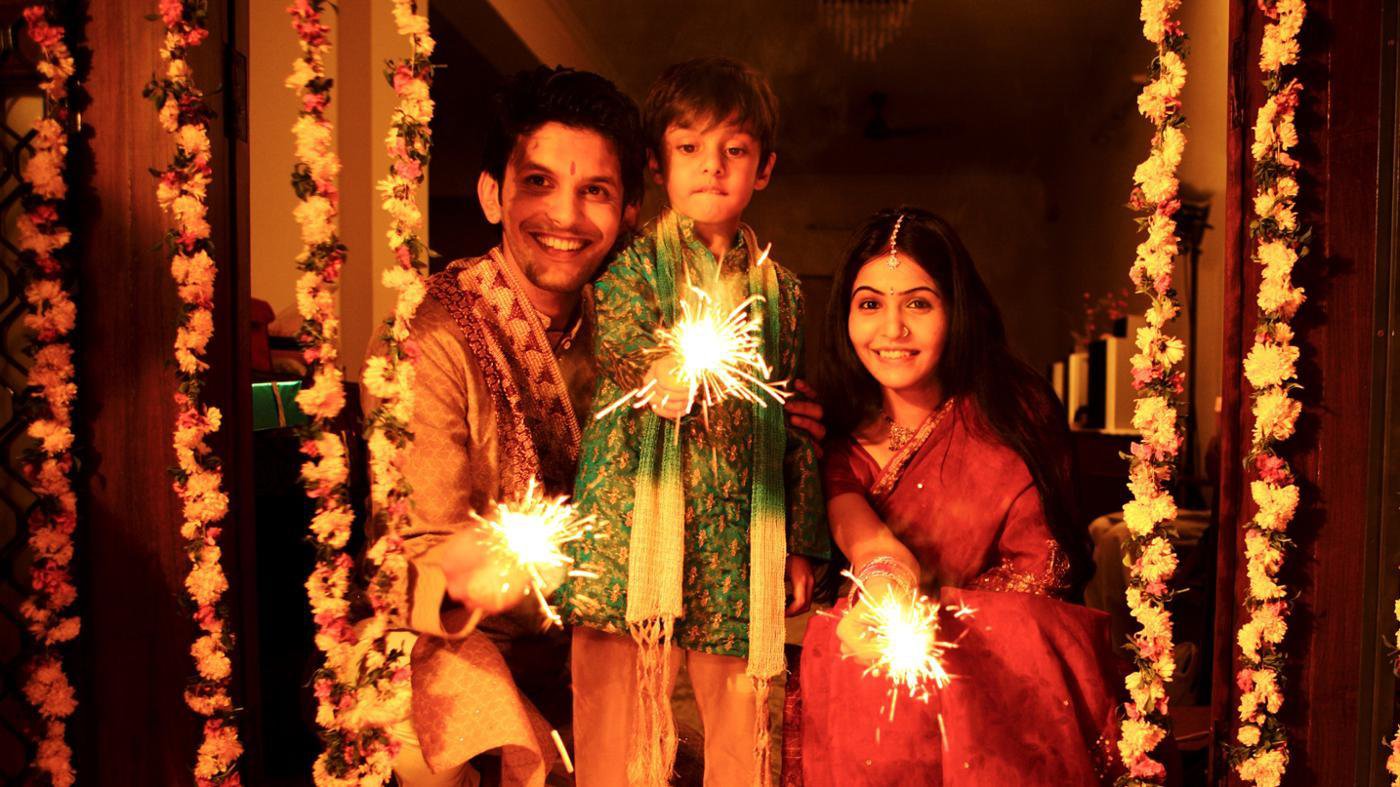Indians appreciate and celebrate Diwali, the Festival of Lights. This bright event celebrates light over darkness, virtue over evil and knowledge over ignorance. The five day Diwali festival involves burning oil lamps, decorating houses, sharing sweets and praying. Hindu mythology underpins these customs especially Lord Rama returning to Ayodhya. Diwali is a traditional holiday that unites families and communities to celebrate rejuvenation, wealth and morality.
The Cultural And Spiritual Essence Of Diwali
One of India’s most essential and extensively celebrated holidays and among Indian communities abroad is Diwali. Light triumphs over darkness, virtue over evil and wisdom over ignorance during this ancient event. Diwali rooted in Hindu mythology is excitedly celebrated across religions and cultures. The five day celebration has its customs and meaning. Diwali is celebrated by lighting diyas and oil lamps that signify knowledge wealth and the end of ignorance. Lord Rama triumph over Ravana and return to Ayodhya after 14 years are central to the event. This story emphasizes morality justice and virtue victory.
Rituals And Practices The Heart Of Diwali Celebrations
Cleaning the house represents removing negativity and welcoming wealth. To welcome visitors, Lakshmi the goddess of riches and fortune homes are decorated with rangoli, a traditional art form with colorful powders, flowers or rice. Diyas and fireworks symbolize the end of evil and the beginning of good. When devotees pray for a happy year Lakshmi Puja is particularly auspicious on Diwali night.
Symbolism And Deeper Meanings Embedded In Diwali
The meaning of Diwali goes beyond burning lights and popping crackers. The festival rituals and practices reflect Hindu ideals and ideas. Light diyas to remove ignorance and embrace enlightenment not only for decoration. The victory of God Rama over Ravana symbolizes good over evil fostering dharma righteousness and morality. The fireworks symbolize Ayodhyans’ pleasure at Lord Rama homecoming. The event promotes family and community as people rejoice, forgive and start again. Some places celebrate Diwali as the Hindu fresh Year representing fresh beginnings rejuvenation and spiritual enlightenment.
The Festive Preparations And Decorations Of Diwali
As Diwali approaches the mood becomes lively and exciting. Due to its cultural importance festival preparations begin early. Cleaning and decorating houses are crucial to Diwali preparations. This method removes bad energy and allows pleasant vibrations and heavenly benefits. Homeowners clean polish furniture and decorate with new colors and layouts.
Diwali decorations are beautiful and traditional. Rangoli decorate homes with elaborate patterns constructed from colorful powders, flowers and grains. Guests and Lakshmi who bring luck are welcomed with these designs at house entrances. Hanging marigold and mango leaves on entrances adds holiday warmth. Many diyas, oil lamps and fairy lights warm up the houses inside. These diyas are lit not just for ornament but also to throw off darkness and provide light into the home.
Diwali festivities include making unique sweets and snacks. Gulab jamun jalebi and ladoos are lovingly created and enjoyed with family and friends. These treats are savored throughout the celebration and given to visitors as a show of goodwill. New garments frequently in bright colors symbolize rejuvenation and wealth adding to the joyful attitude.
Diwali Impact On Commerce And Economy
Diwali affects trade and the economy beyond culture and religion. The festival is a busy time for shoppers and businesses. Retailers provide Diwali discounts specials and promotions months in advance to entice shoppers. People buy more technology jewelry apparel and household appliances to celebrate and give as presents at this time.
The Diwali economic boost spans industries. Small companies and local artisans that make diyas rangoli materials and holiday decorations see a rise in demand. This economic activity boosts local economies and supports craftsmen and small businesses. The event also boosts hospitality sector income as people travel to see family and friends or celebrate booking more hotels, transport services and restaurants.
Diwali affects stock markets and financial operations. It is considered lucky to invest in gold and other precious metals which are thought to bring wealth. Market patterns and trade volumes might change as individuals invest in the festival’s good atmosphere to make money. Diwali influence on commerce and the economy shows its economic importance influencing consumer behavior and company initiatives throughout this holiday season.
Regional Variations And Unique Customs Of Diwali
Diwali is celebrated nationwide although regional customs and traditions represent India cultural variety. Northern India celebrates Diwali by honoring Lord Rama’s return to Ayodhya after defeating Ravana. Celebrations include big parties, magnificent fireworks displays and Lakshmi Puja to bring wealth home. Northern nations hold lively processions and burn Ravana effigies to celebrate evil defeat.
Southern Indian Diwali called Deepavali has unique traditions. The festival theme is Lord Krishna defeating Narakasura. Early morning oil baths, fresh clothing and lights are traditions. Family gatherings in Tamil Nadu and Karnataka include jhangri and murukku which are unique Deepavali sweets.
In western India, especially Gujarat, Diwali starts the new fiscal Year. Celebrations include sweets and extravagant celebrations. Diwali marks the Gujarati New Year or Vikram Samvat and individuals undertake Ghar Puja home worship to guarantee prosperity. Eastern India especially West Bengal celebrates Diwali with the Kali Puja which honors Kali. The regular Diwali festivities and elaborate Kali rites are also celebrated in this area.
These geographical differences in Diwali rituals show the festival flexibility and cultural relevance. Individual traditions from each area enrich Diwali festivities highlighting India’s broad cultural past.
Conclusion
Diwali is more than a festivalit celebrates light wisdom and virtue triumphing over evil. The festival’s meticulous preparations, regional traditions and substantial economic effect demonstrate its cultural and spiritual importance. Diwali promotes togetherness, rejuvenation and prosperity as families celebrate with colorful decorations, festive feasts and passionate prayers. This timeless celebration illuminates lives, unites communities and enriches culture worldwide.

